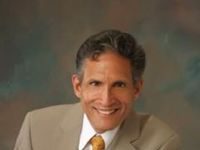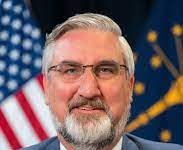TheStatehouseFile.comÂ
INDIANAPOLIS – Gov. Eric Holcomb’s fourth State of the State address made news in two ways.
The first was for something he didn’t say.
The second was for something he did.
The omission is likely to gain the most attention. For days leading up to the speech, there had been speculation that Holcomb was going to announce plans to deal with Indiana’s teacher pay problem during this legislative session.
It turned out to be just that – speculation.
Holcomb offered detailed plans to increase teacher compensation, but every one of them will be part of the governor’s 2021 legislative agenda. There was nothing for this year.
It’s hard to know why that is.
Right after the speech, I talked with Indiana Rep. Justin Moed, D-Indianapolis.
Moed said he was surprised that Holcomb didn’t propose something for teachers this year.
“All he did was kick the can down the road,†Moed said.
I asked Moed if there would have been support in the Indiana House of Representatives if Holcomb had pushed for more money for teachers this year.
“Oh, yeah,†Moed said. “He’s a popular governor. The members of his party would have supported him on it.â€
Besides, Moed said, in the rest of the governor’s speech, Holcomb made clear that there was plenty of money available to solve the problem.
Indiana Rep. Jerry Torr, R-Carmel, said pretty much the same thing.
Torr said, “I wouldn’t have had a problem with a one-time bonus†that eased teachers’ pain while legislators worked out a more permanent solution in next year’s legislative session. He added that there would have been enough votes in the House to pass such a plan.
So, why didn’t the governor propose doing that?
Torr shrugged his shoulders.
“I don’t know,†he said. “I haven’t talked with him about it.â€
The speech certainly didn’t offer many clues as to why Holcomb chose not to act.
Holcomb touted the state’s efforts to reshuffle and restructure state funds – mostly pensions – to free up an additional $50 million every year to increase teacher pay. He also called attention to the charge he had given to his Teacher Compensation Commission to make Hoosier teachers’ salaries competitive with those of educators elsewhere in the Midwest.
The governor’s tone suggested urgency.
But his actions sure didn’t reflect that.
Nowhere during his 33-minute speech did he say why Indiana, with lots of money in the bank, couldn’t try to solve one of the state’s most pressing problems.
Now.
Not next year.
The reason Holcomb chose not to help teachers this year remained just as great a mystery after his speech as it was before he stepped to the podium. His silence spoke in ways that likely will not help the state move forward.
The thing the governor said that did break new ground came near the end of the speech. It came as Holcomb set up his conclusion.
“My fellow Hoosiers, we’ve become known around the world as ‘A State that Works,’†the governor said. “I want Indiana to become known as ‘A State that Works for All.â€
Then came the key part:
“Where every citizen – no matter their background or age or who they love or whether they grew up here or arrived last week – has equal access and opportunity to go as far as they wish and are willing to work to get there.â€
No matter … who they love.
That was a far cry and a bold departure from the days, not long distant, when this state and Holcomb’s own party sought to deny same-sex unions and to allow Hoosier businesses to discriminate against law-abiding citizens based on their sexual orientation.
The governor may have lacked courage in dealing with the teacher pay question, but he demonstrated plenty of it in redressing a huge and historic wrong.
That’s important.
Following Eric Holcomb’s speech, teachers had just reason to complain.
But the cause of justice, thank goodness, did not.
FOOTNOTE: John Krull is director of Franklin College’s Pulliam School of Journalism and publisher of TheStatehouseFile.com, a news website powered by Franklin College journalism students.






